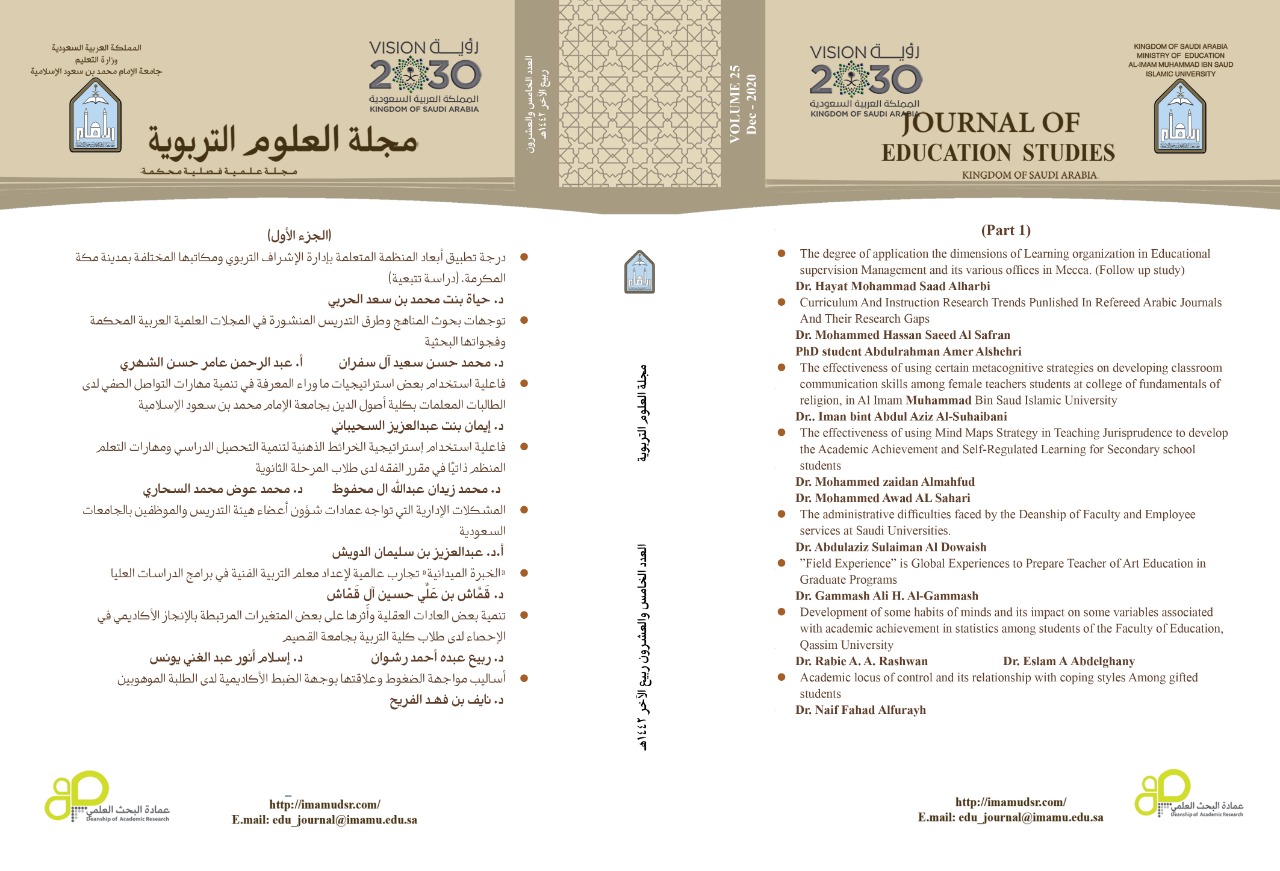Curriculum and Instruction Research Trends Published in Refereed Arabic Journals and their Research Gaps
Keywords:
Curriculum and instruction Research trends - Arabic refereed Journals – Research gaps of Curriculum and instruction ResearchAbstract
This study aimed at identifying curriculum and instruction research trends published in referred Arabic journals and their research gaps during the period between (2010 – 2019). The descriptive and analytical method to achieve the research objectives through the content analysis form was utilized. The research sample was selected in a simple random manner, and consisted of (1278) research in six refereed journals from six Arab countries. The research results revealed that the research trends were represented in two main domains: curriculum components and academic achievement. Besides, there are other seven sub-domains: teaching strategies, cognitive objectives, thinking theories, psychomotor objectives, teaching techniques, content, and instructional programs. In addition, the results showed that there are four research gaps in the main domains out of six, and they are: curricula and education, teacher, programs, and theories. There are also differences in the trends of curriculum and instruction research due to the journal and the publication year variables. The percentage of its publication to the total publication of the educational research was (29.27%), and most of the curriculum and instruction studies are carried out by one researcher with a percentage of (54.90%). The results also showed that there were (21) research gaps in the sub-areas in ascending order as follows: curriculum theories, curriculum types, curriculum foundations, curriculum organizations, objectives, curriculum development, learning theories, enrichment programs, knowledge theories, educational environment, quality of education, instructional activities, teacher education, curriculum evaluation, affective achievement, education problems, student assessment, intelligence




